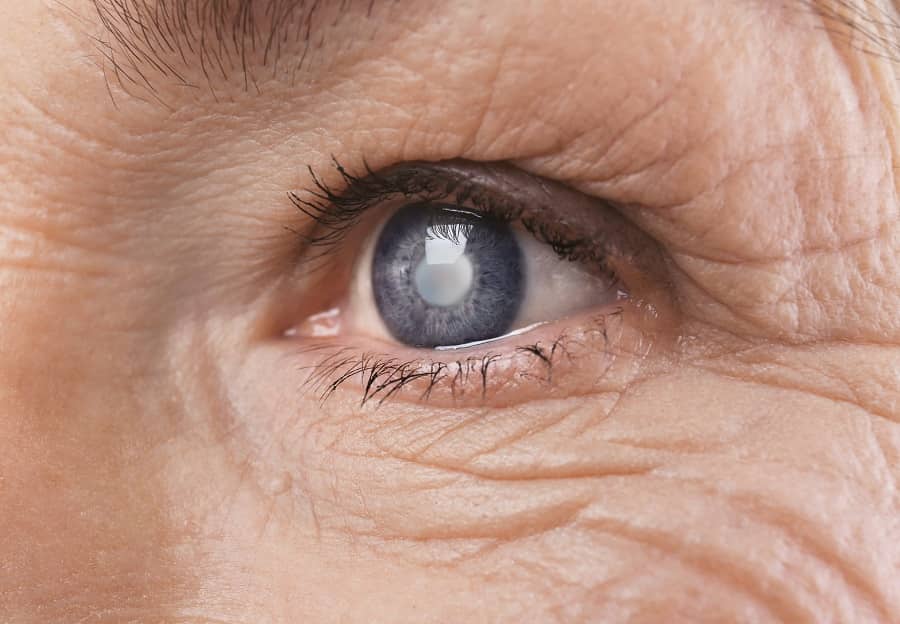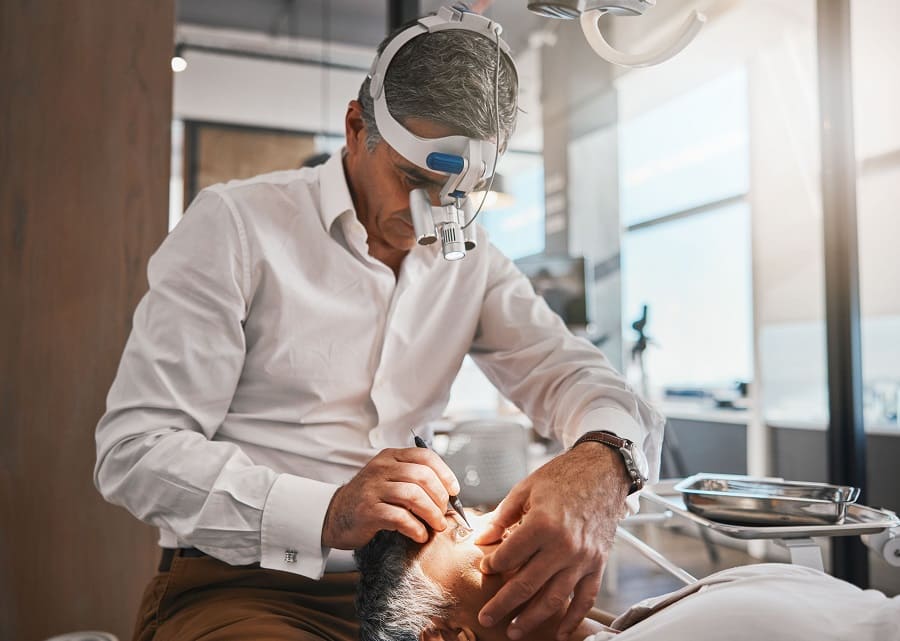

More than 24.4 million Americans over the age of 40 get cataracts. Since our eyes, like our other senses, such as hearing, play a significant role in our lives, the anxiety around cataract surgery is understandable.
Yet, a cataract operation is one of the most widely performed surgeries in developed countries used to correct vision and improve the quality of life of millions of patients. Still, as you may wonder about eye pain after cataract surgery – How severe is it? Should you worry? Is cataract surgery painful?
The good news: While it may cause mild discomfort, this eye surgery isn’t painful.

General anesthesia for cataract removal is exceedingly uncommon. In most instances, patients remain awake throughout the procedure. While you will be conscious during the surgery, numerous precautions are implemented to guarantee a painless experience. Typically, you will receive a mild sedative beforehand to induce relaxation. Moreover, topical anesthetic drops will be administered to numb your eyes.
However, modern surgical techniques, such as phacoemulsification, use ultrasound to break up the cataract and remove it, which allows the eye surgeon to continue the procedure even if there is a brief interruption due to blinking.
Cataract surgery techniques have been refined to prioritize patient comfort. Before the surgery, you will use antibiotics and anti-inflammatory eye drops to keep your eyes comfortable.
To perform cataract surgery, a sedative will be administered on the day of the procedure to help you relax. A lid guard will hold your eyes open, and anesthetic eye drops will prevent discomfort. While you may feel pressure, there should be no pain during cataract surgery.
During the surgery, you might see changing bright lights resembling a kaleidoscope. Your cataract surgeon will check your well-being throughout, but you may not remember the details due to medication. Generally, patients handle cataract surgery exceptionally well.

Recovery time after cataract surgery varies, but most people experience little or no discomfort and significant vision improvement within a few days to weeks.
Here’s a concise timeline:
Consult your ophthalmologist for personalized recovery information.
Here are some eye care healing and recovery tips to ensure a quick, safe, and pain-free cataract surgery recovery:

Cataract surgery pain is rare and could indicate a complication, so talk to your surgery center or doctor if you experience this. However, mild to moderate post-surgical discomfort is common after medications wear off.
If it is bothersome, ask your doctor if you can take Tylenol; this generally takes care of any soreness. If you have discomfort, it should only last a few days.
Other common symptoms to expect after this refractive surgery include:
These symptoms are usually mild and temporary. Ask your doctor if you can use artificial tears during the recovery period, as these can alleviate discomfort.
Immediately after the surgery, your eyes might feel gritty, dry, red, and bloodshot. It’s worth noting that cataract surgery can potentially worsen or trigger dry eye disease, which can range from mild dryness to severe pain.
Discomfort after cataract surgery, including cataract surgery, inflammation, and wound healing, are natural bodily responses. Some individuals may encounter heightened sensitivity to glare in the weeks to months following the procedure, which can be painful in bright environments.
To alleviate post-operative discomfort, there are measures you can take. Tear lubricants can help soothe irritation or dryness in the eye, while diligently using the prescribed post-operative eye drops can assist in managing inflammation. Oral painkillers can also minimize discomfort.
It’s important to communicate any concerns or persistent pain in the eye after cataract surgery to your doctor, as they can provide guidance and adjust the post-operative care plan if necessary.
Cataract surgery is often a surprising and positive experience for most individuals due to its quick and painless nature. Many patients are amazed by the efficiency and effectiveness of the procedure. Although some people may encounter minor discomfort in the postoperative period, it is typically transient and manageable.
If you are contemplating cataract surgery and are eager to regain clear vision, we encourage you to take the next step by taking an online cataract self-test. If positive, or if you have any eye health concerns, we urge you to schedule an eye appointment at Discover Vision Centers in Kansas or Missouri.